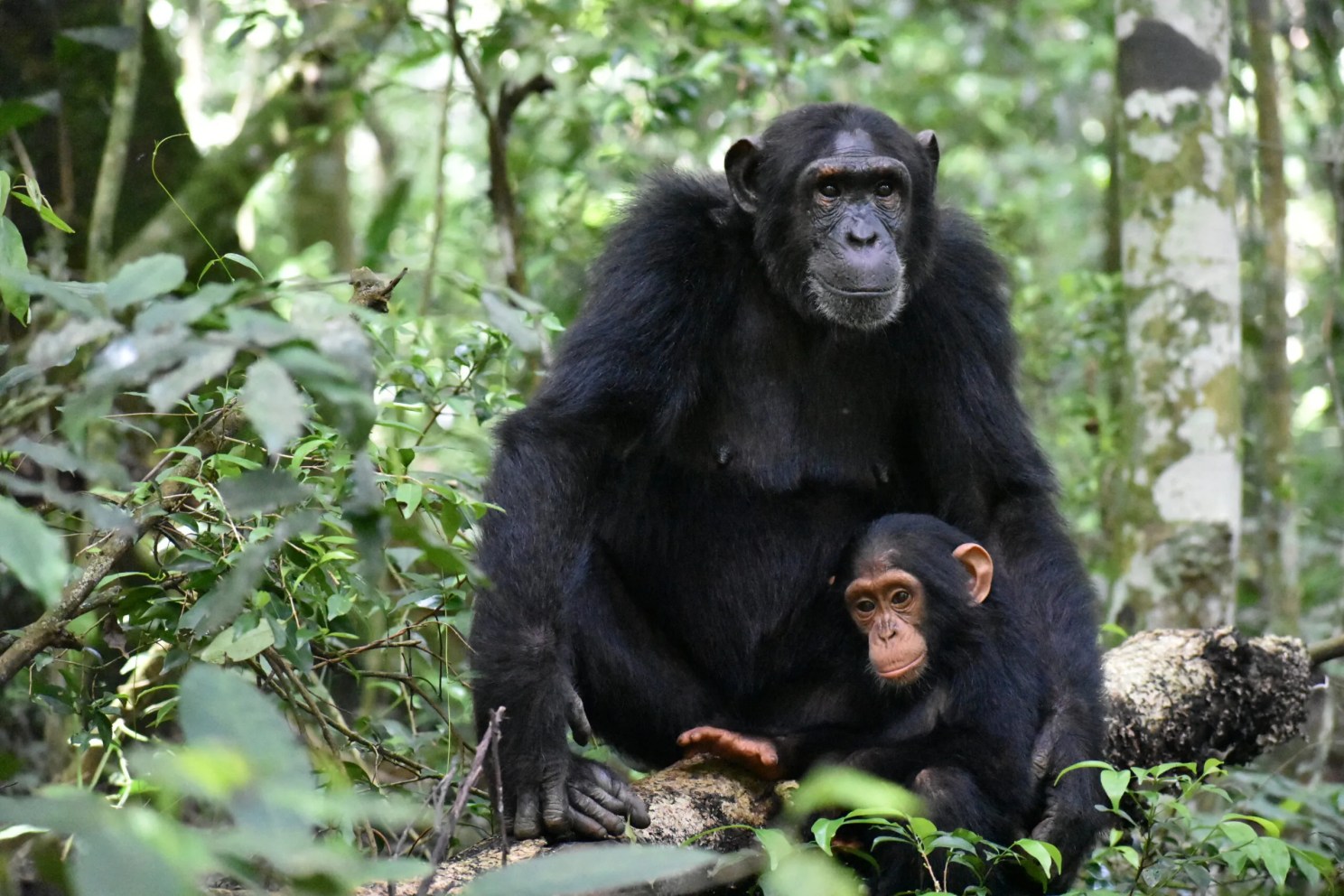Importance of play for young chimpanzees and their mothers

A mother and young chimp.
Kristin Sabbi and Kibale Chimpanzee Project
When it comes to nurturing their young, mother chimpanzees go the extra mile, according to a new study. Using 10 years of observational data on wild chimpanzees, researchers found that when food gets scarce, the adults put mutual play aside and focus on survival.
But in the meantime, mother chimps continue to be their offspring’s primary playmate—tickling and chasing. That suggests the mother chimps take on an indispensable role fostering their young’s physical and social development even when they are under food stress.
The study observations took place in Kibale National Park in Uganda, and the analysis, published in Current Biology, was led by Kris Sabbi, a college fellow in the Department of Human and Evolutionary Biology who recently joined the Pan Lab at Harvard. The study’s senior author was Zarin Machanda of Tufts University.
Through their previous work, Machanda and Sabbi were familiar with the playfulness of chimpanzees and decided to look deeper into the patterns of play behavior. They expected seasonal variations in food availability would affect adult chimps’ time spent playing.
For example, when supplies of quality fruits were low, the chimps focused on finding and gathering figs and leaves and put play time aside. Surprisingly, although chimp mothers had the same challenge in finding food, they continued devoting a lot of their time to nurturing their offspring’s development through play.
Play is not very common in the wild, at least among adult animals. Natural selection tends to suppress the costly exercise after it serves its purpose for development, and the time comes to focus on finding food, watching out for predators, and mating. With chimps, however, adult play serves to cement social bonds.
Play among the chimps also often divides depending on their sex. “It’s not uncommon to see male chimps to engage in more aggressive types of play, while females are doing a type of play related to parenting,” said Machanda.
Mothers are often the ones that juveniles and older infants come back to. “If they’re playing with somebody and it starts to get a little bit too rough, they’ll switch it up and go back to playing with mom, because at the end of the day, it’s a very safe place,” said Sabbi.
“If we compare to humans, it’s very easy to find lots of evidence in the child psychology literature for how important it is for human mothers and fathers to be playing with their children, especially at really young ages. Moms and dads are important first play partners before kids branch out into their own social networks,” she said.




